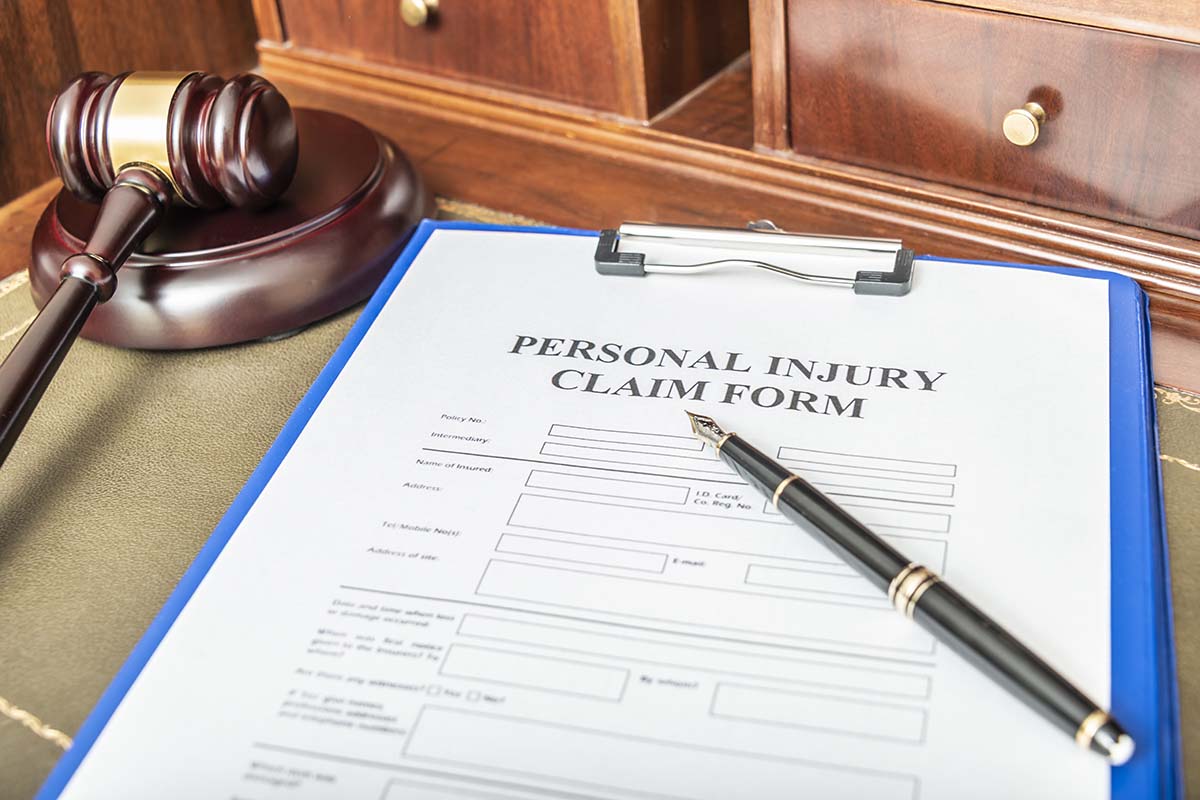The Common Stages of an Injury Lawsuit
Lawsuits are seldom like what we see in the movies and on television. Occasionally, a case may involve a suit against a major corporation or high-profile celebrity, but those cases are few and far between. According to Trent Law, most personal injury lawsuits get resolved before ever going to trial. While every personal injury claim is unique, almost all of them go through similar stages from beginning to end.
You’ve Been Injured
You’ve been injured in an accident that was not your fault, and your first priority is getting proper medical treatment. Your next step should be to gather any information about the accident, such as police reports, medical records, witnesses’ names, and contact information.
You then meet with a lawyer, who will go over this information with you and decide whether or not you have a viable claim against the person(s) or business that harmed you. A lawyer is not obligated to take a case, and just because one refuses doesn’t mean that another will do the same. Trent Law says that the sooner you establish a relationship with an attorney, the sooner they can file your claim and the sooner you can receive compensation.
Once an attorney decides to take on your case, they will want to discuss fees. Most personal injury attorneys work on contingency fees. You only pay contingency fees if you reach a settlement or win your case in court. Contingency fees usually range from 25% to 40% of the final settlement. Attorneys base their contingency fees on how complex the case is, the risks involved in taking the case, and the cost of litigation.
Stage 1: Filing a claim
Almost all injury cases involve negotiating with an insurance company, and the first thing your attorney will do is file a claim with the defendant’s insurance company. The claim will provide details about your injuries and the amount they deem necessary to cover those injuries and any future expenses. Damages are the financial penalty paid by the defendant for negligence, and your attorney will use evidence to determine the amount you should receive.
The types of damages evaluated are:
- Medical expenses;
- Missed wages;
- Ongoing care;
- Funeral costs;
- Illness;
- Disability;
- Physical pain and suffering;
- Emotional pain and suffering.
Stage 2: Settlement I
A settlement for a claim can come at any point, up until a judge or jury renders a verdict. Trent Law Firm says that once they file your claim with the defendant’s insurance company, it is up to the insurance company to decide whether or not they will pay the requested amount or make a counteroffer.
If the insurance company provides a counteroffer, you will decide if it is fair or not with advice from your attorney. If you choose to accept the offer, the claim is resolved, you will receive payment, and you will not need to file a lawsuit. However, if the insurance company refuses to pay a fair amount, it is best to proceed with filing a lawsuit.
Stage 3: Filing a Lawsuit
Filing a personal injury lawsuit will typically occur in a circuit court depending on where the incident took place or where the person you are filing a lawsuit against lives. It is also essential to check the statute of limitations for your case. In Illinois, the statute of limitations for personal injury claims is two years. You can check the statute of limitations for your state in this table.
Your attorney will help you research the law that applies to your case and help you organize your argument. Remember there are different types of personal injury cases, such as:
- Motor vehicle accidents
- Medical malpractice
- Wrongful death
- Product liability
- Premises liability
- Traumatic brain injury
Stage 4: Discovery Phase
The discovery phase is the pre-trial process of gathering information in preparation for trial. Both parties exchange information about the witnesses and evidence they plan to bring to the court during discovery. Discovery avoids a trial by ambush when one party surprises the other with evidence or witnesses they had not previously made known.
Discovery items can include interrogatories, production of documents, admissions, and depositions.
Interrogatories
Interrogatories are written questions from one party to another to answer under oath. Attorney use in depositions or during trials. Interrogatories can do various things, such as track a party or witness’ answers overtime to catch changes or falsifications in testimony.
Production of Documents
Requests for production require a person or entity to produce documents that work as physical evidence. Both parties must provide copies of any documents they plan to use in court. They can be in the form of papers or electronic files. Your lawyer can subpoena records from third parties not directly involved with the case. The production of documents can be costly.
Admissions
Admissions are written statements used to secure basic facts and avoid having to establish them at trial. It is not the same as an admission of guilt; instead, it is a way to have both parties acknowledge and accept some facts ahead of time.
Depositions
A deposition is a witness’s sworn, out-of-court testimony used to gather vital information. Attorneys can use depositions during a trial under particular circumstances. The deponent is the person being questioned by the opposing party’s attorney.
Informal discovery
Informal discovery information can include photographs or third-party documentation not otherwise mentioned above.
Stage 5: Trial Phase
Court trials can be long-drawn-out processes, taking months, if not years, to reach their final conclusions. Even if you win the initial trial, the defendant is likely to appeal the verdict, and the appeals process may last several months. Like those at Trent Law, lawyers will guide you through the entire process, from filing the suit to the verdict and the appeals court.
Stage 6: Settlement II
As stated earlier, a settlement can be reached at any point during the trial if both parties agree on it, as long as the court has not given its decision. If either party believes the court proceedings are not going well for their side, they may choose to accept an offer from the other.
Stages of an Injury Lawsuit: Find a Personal Injury Attorney
Experiencing a personal injury due to the negligence of others can be highly stressful. Injuries can be severe and have long-lasting consequences, including death. Finding a personal injury attorney, like Trent Law, can help relieve some stress. They have the skills and knowledge to move your case forward and get the best possible outcome.




















